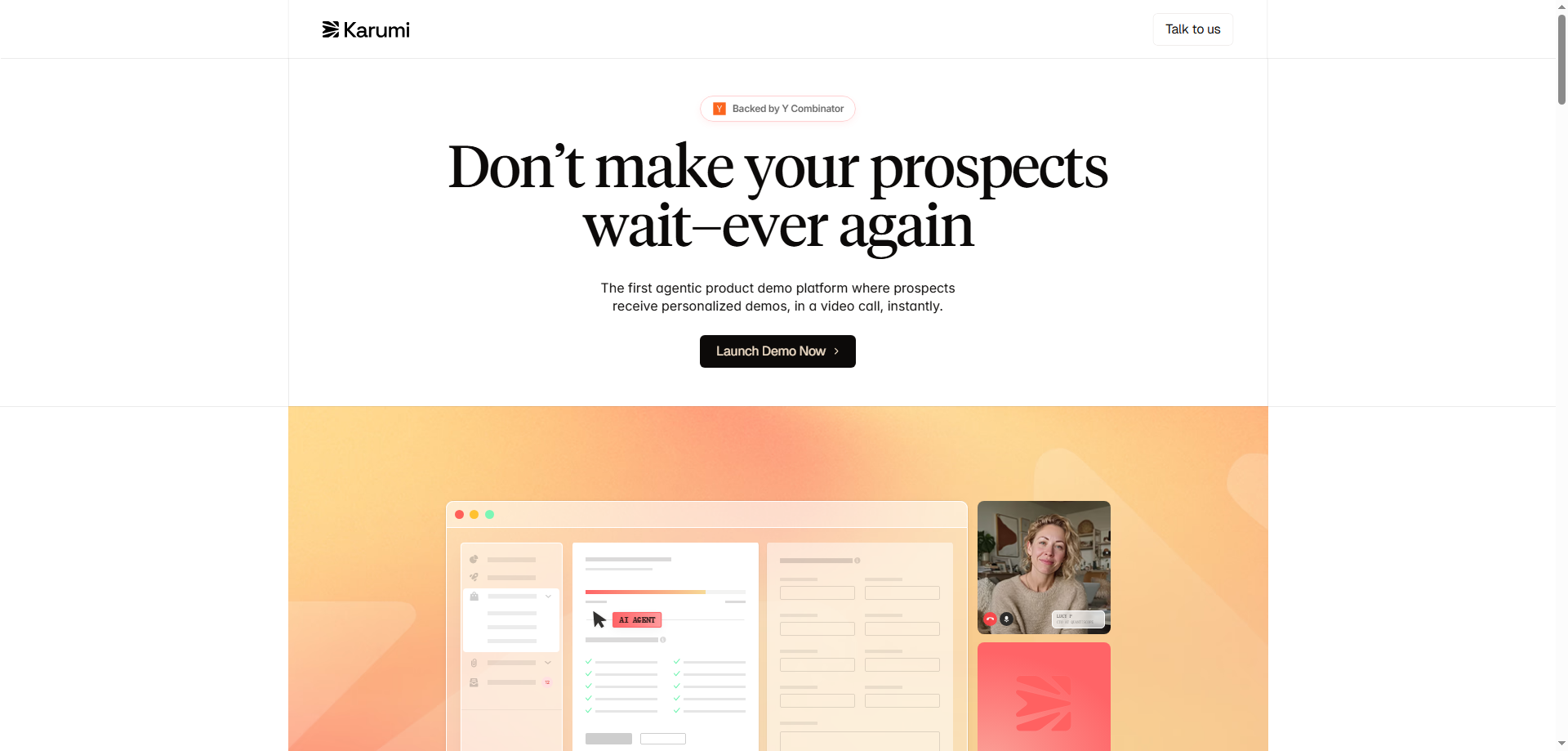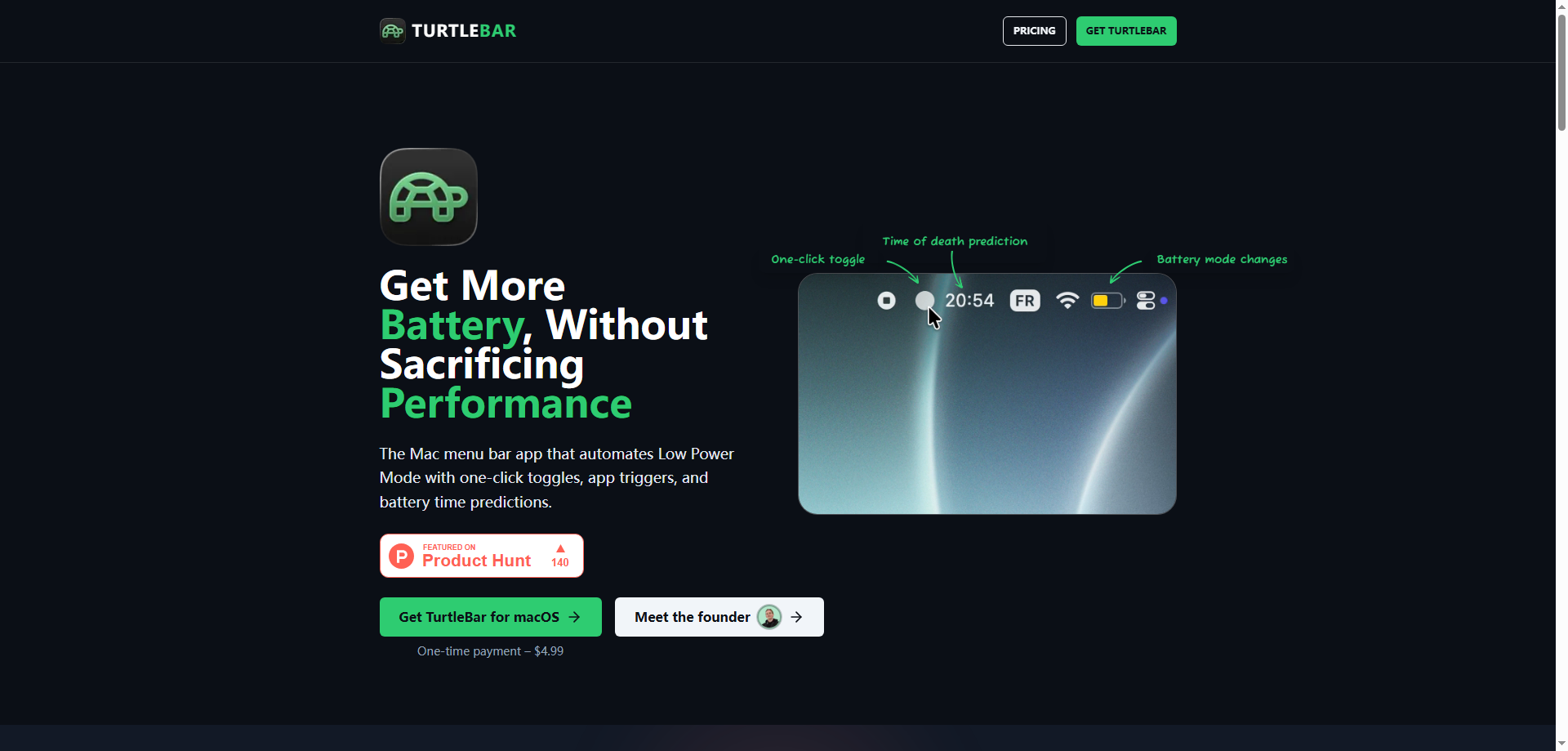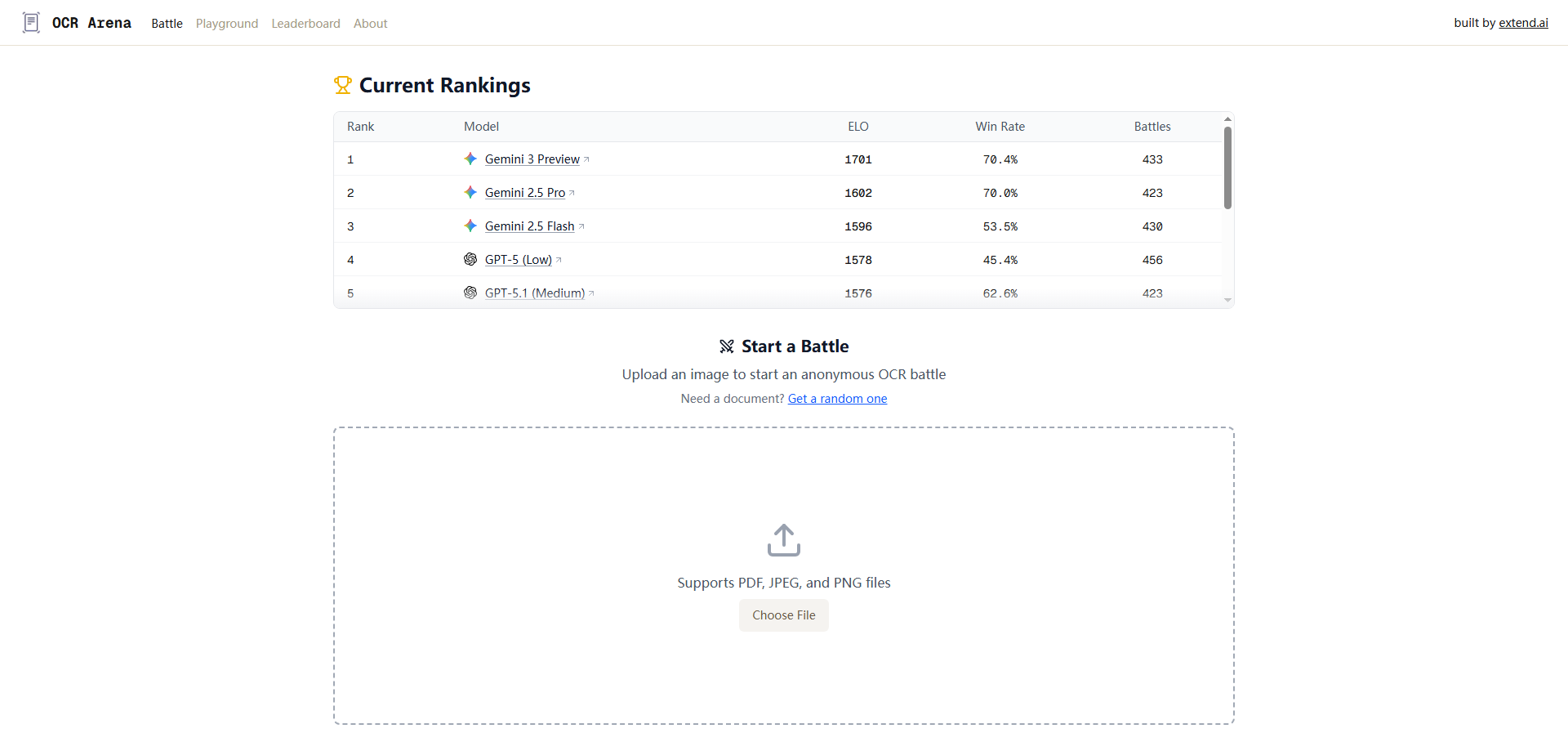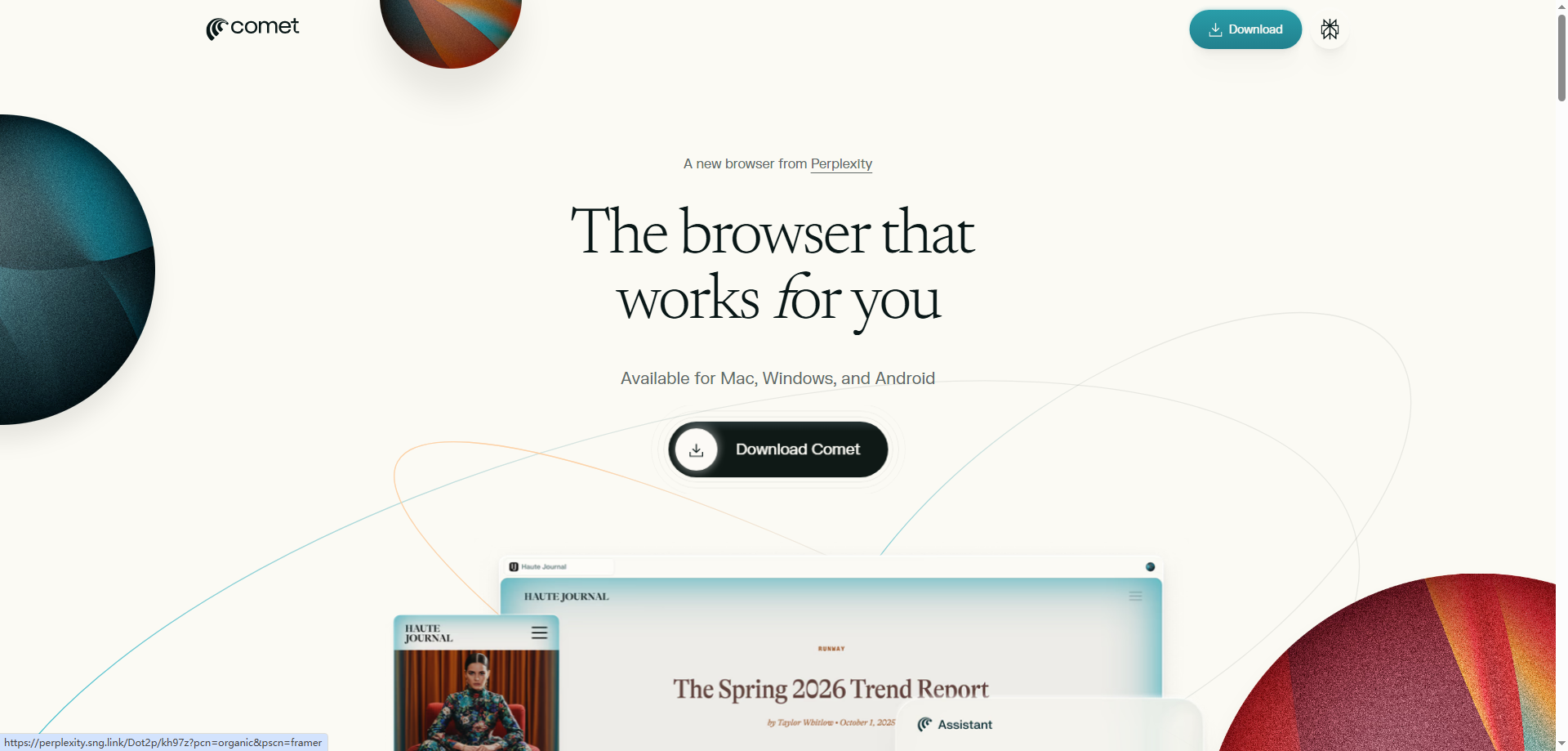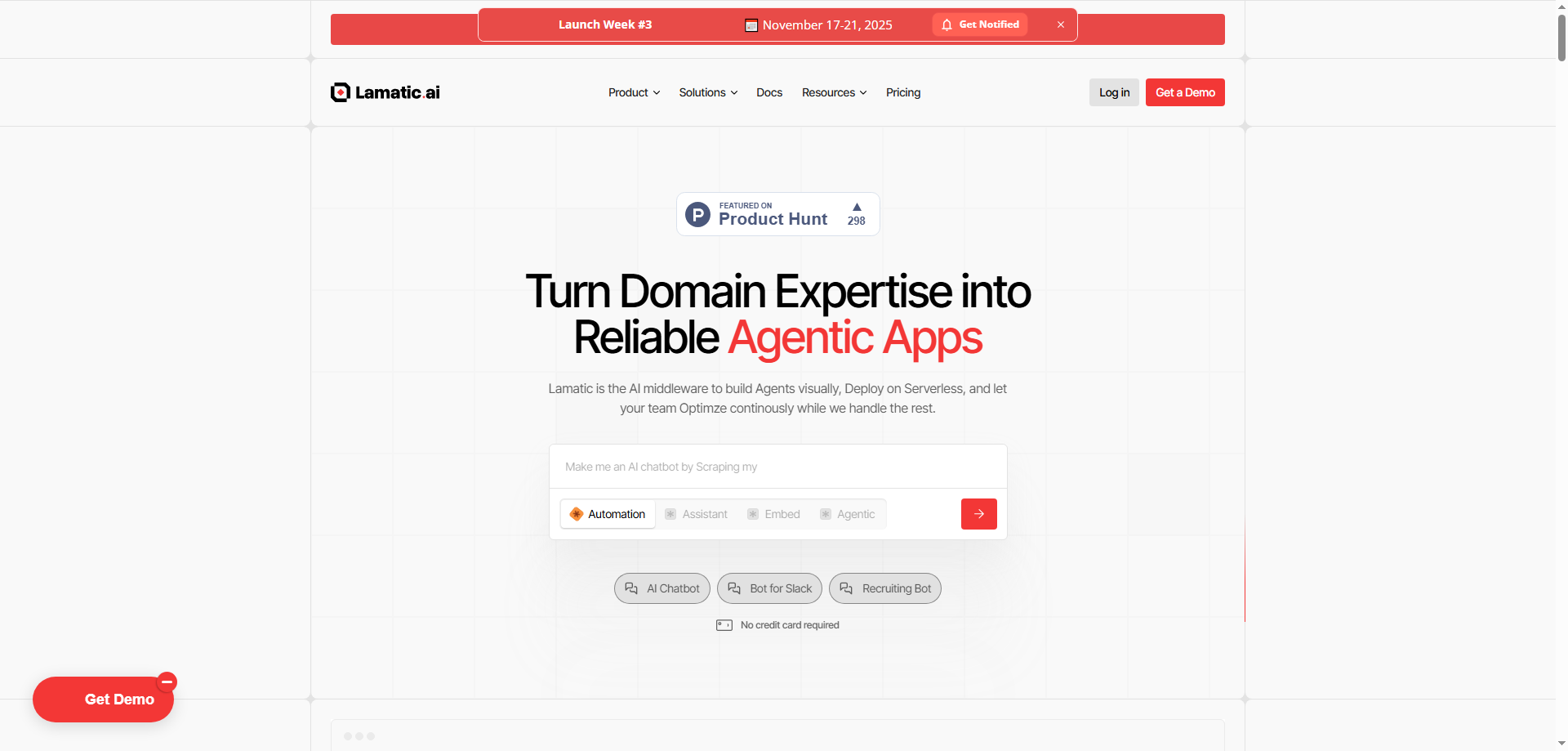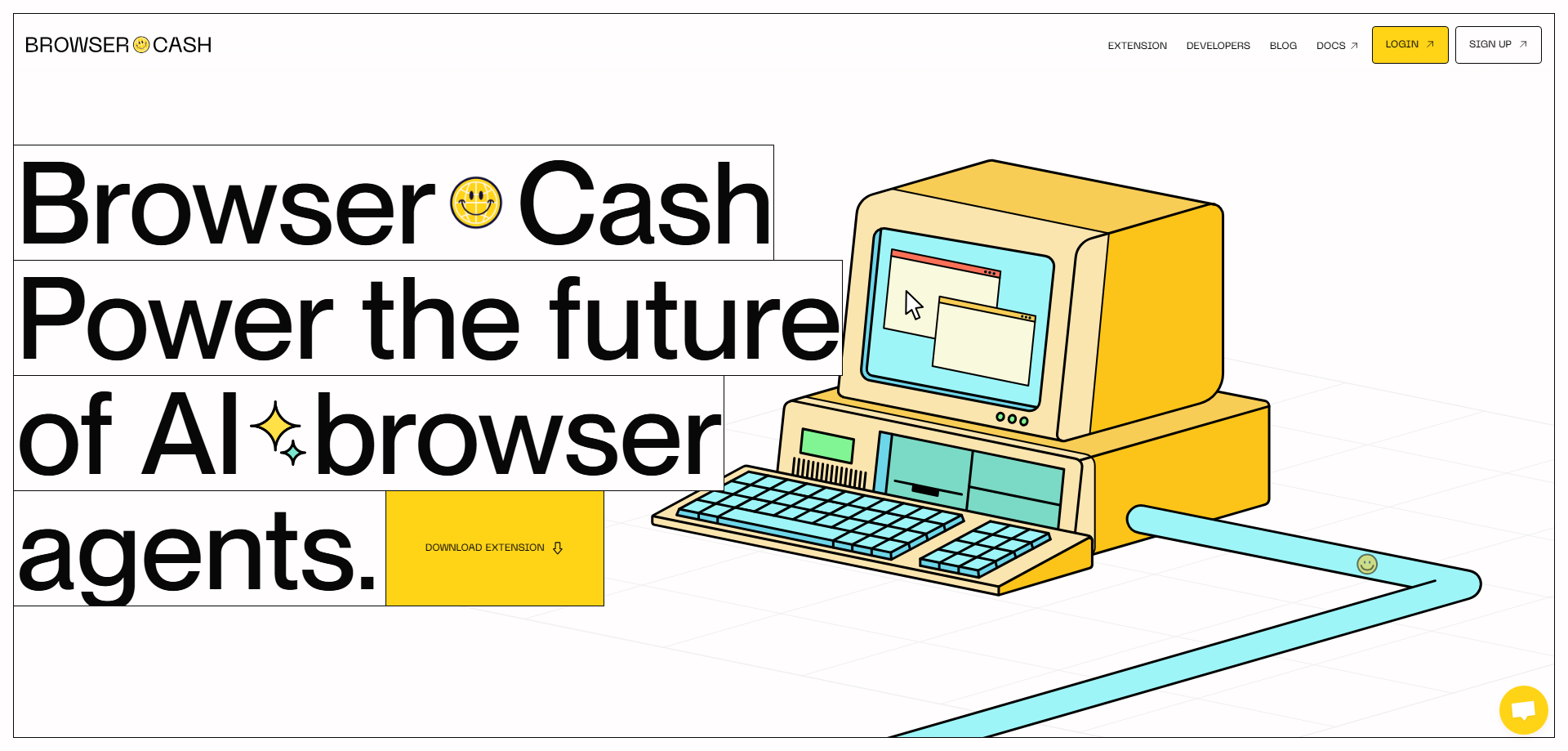The Creative Vision Behind AI-Powered Live Demo Agents
Let me start by acknowledging what's genuinely creative about Karumi: the concept of an AI agent that joins live video calls to deliver personalized product demonstrations is ambitious and addresses a real gap in how companies handle product demos at scale. But I'm also approaching this with measured skepticism about execution and differentiation.
The core creative insight is recognizing that product demos are a bottleneck in sales processes. Traditional approaches suffer from timing constraints—sales teams can't be available 24/7, recorded demos lack personalization, and self-service product tours miss the persuasive power of guided presentations. Karumi creatively attempts to solve all three problems simultaneously with an AI agent that delivers live, personalized demos anytime, anywhere, in any language.
What strikes me as particularly creative is the intent recognition and intervention timing. Rather than offering generic product tours to everyone, Karumi supposedly identifies when visitors show strong purchase intent and intervenes at those peak interest moments. That's psychologically smart—capitalizing on curiosity when it's strongest to convert interest into action. The creative thinking here is about understanding the buyer journey and intervening strategically rather than constantly.
The multilingual real-time video capability is creatively ambitious from a technical standpoint. Building an AI that can not only understand product features and customer needs but also present them conversationally in multiple languages through video is genuinely complex. If executed well, this breaks down geographical and linguistic barriers that traditionally require hiring sales teams in multiple markets.
The shift from passive to interactive demos represents creative thinking about engagement. Traditional product videos are one-way communication—you watch and learn, but can't ask questions or explore based on your specific interests. Karumi's promise of interactive, self-guided demos where the AI responds to user questions and adjusts presentation based on interests is creatively addressing the engagement limitations of static content.
However, the creative execution faces some fundamental questions I can't answer from the description. What does this AI agent actually look like in video? Is it an avatar, animated character, or just voice-over with screen sharing? How natural are the interactions? Can it truly understand complex product questions and provide accurate answers? These implementation details determine whether the creative vision is genuinely realized or feels gimmicky and unconvincing.
The "next generation of interactive, self-guided demos" positioning is creatively bold but also creates high expectations. Interactive product demos already exist through tools like Navattic, Demostack, and Storylane. What makes Karumi's approach "next generation"? The AI agent aspect is the differentiator, but is that genuinely better or just different?
What I find less creatively compelling is the use case framing. The examples—SaaS companies, e-commerce platforms, tech product launches, online education—are extremely generic. These are obvious applications for any sales automation tool. More creative positioning would identify specific pain points or use cases where Karumi's approach is uniquely valuable versus alternatives.
The Product Hunt reception (135 votes, 14 discussions) suggests the creative vision isn't resonating as strongly as it could. For a tool promising to revolutionize product demos, that's modest enthusiasm from a community that loves sales and automation tools. This makes me question whether the creative concept, while interesting, addresses needs urgently enough to drive excitement.
The integration story isn't clearly explained, which limits creative implementation possibilities. How does Karumi integrate with existing sales tools, CRMs, marketing automation platforms? Creative value often comes from seamless workflow integration, and the description doesn't illuminate this.
Can AI Demo Agents Actually Replace Human-Led Presentations?
This is where I need honest assessment of Karumi's disruption potential. The product demo and sales presentation landscape is evolving rapidly with AI, but can Karumi genuinely disrupt established approaches? My take is nuanced.
Let's examine what Karumi is competing against. Traditional product demos involve human sales representatives scheduling calls with prospects, conducting live presentations, answering questions, and guiding toward purchase. This approach is time-intensive, doesn't scale, and requires coordinating schedules across time zones. Karumi directly challenges this by offering 24/7 availability and instant demos without human involvement.
Pre-recorded demo videos are everywhere—on websites, YouTube, marketing materials. They're scalable and always available but completely lack personalization and interactivity. Karumi disrupts this by adding the personalization and interactivity of live demos while maintaining the scalability of recorded content.
Interactive demo platforms like Demostack, Navattic, Storylane, and Reprise create sandbox environments where prospects can explore products hands-on. These are genuinely useful but lack guided presentation and sales conversation elements. Karumi adds the conversational, guided aspect through its AI agent, which could make demos more effective for users who want guidance rather than pure self-exploration.
Chatbots and AI sales assistants like Drift, Intercom, or Qualified provide automated engagement but typically through text-based chat, not video presentations. Karumi's video-based approach potentially creates more engaging, persuasive interactions than text chat, though at the cost of higher technical complexity.
However, the disruption faces significant limitations. Can AI truly replace skilled human sales representatives for complex B2B products? I'm skeptical. Enterprise software sales involve deep product knowledge, understanding of customer's specific business context, relationship building, and nuanced objection handling. Current AI, no matter how advanced, struggles with this contextual sophistication.
The trust and authenticity question looms large. Will prospects genuinely trust product recommendations and explanations from an AI agent, or will they perceive it as a sophisticated chatbot trying to manipulate them into purchasing? Human sales relationships involve trust built through genuine understanding and expertise. Replicating that with AI is extremely challenging.
The technical limitation reality can't be ignored. AI agents, even advanced ones, can provide incorrect information, misunderstand questions, or fail to handle edge cases. In sales contexts where accuracy matters enormously, these failures could damage trust and brand reputation more than they help conversions.
For certain product categories and sales scenarios, Karumi could meaningfully disrupt current approaches. Simple SaaS products with straightforward value propositions, e-commerce items that need demonstration, educational courses—these might work well with AI-guided demos. Complex enterprise solutions, highly technical products, or relationship-intensive sales probably won't be disrupted by AI agents anytime soon.
The 24/7 multilingual availability genuinely disrupts geographical and temporal limitations of human sales teams. A company can theoretically serve global markets without hiring international sales staff or operating across time zones. That's real value, though it competes with recorded videos that already provide 24/7 availability.
Where I see strongest disruption potential is in replacing low-value, repetitive product demos for simple products. If your sales team spends hours daily giving essentially identical product overviews to early-stage prospects, Karumi could automate that qualifying stage, letting humans focus on high-value conversations with qualified leads.
So my assessment: Karumi will disrupt certain segments of product demos—particularly high-volume, lower-complexity presentations—but won't replace human sales for complex, relationship-driven sales processes. It's targeted disruption, not category transformation.
Will Companies Actually Trust AI Agents to Handle Sales Conversations?
This acceptance question is crucial because Karumi's success depends entirely on companies being willing to let AI agents represent their products in sales contexts. I'm cautiously skeptical about widespread acceptance for several reasons.
Let's start with potential acceptance drivers. Sales automation is increasingly mainstream. Companies already use chatbots, automated email sequences, and AI-powered lead scoring. The conceptual leap to AI-powered demo agents isn't enormous. That growing comfort with sales AI creates foundation for acceptance.
The cost savings appeal is obvious. Hiring, training, and maintaining global sales teams is expensive. If Karumi can deliver even 70% of the effectiveness at 10% of the cost, the ROI calculation becomes compelling for budget-conscious companies, especially startups and SMBs.
The scalability advantage addresses real pain. Sales teams can only conduct so many demos per day. During product launches or marketing campaigns that drive traffic spikes, companies often can't handle demo demand. Karumi's infinite scalability theoretically captures opportunities that would otherwise be lost.
The multilingual capability without hiring international sales staff appeals to companies wanting to expand globally without massive overhead. Being able to serve prospects in their native language instantly removes a major barrier to international growth.
However, the acceptance barriers are substantial and maybe insurmountable for many companies. The 135 Product Hunt votes and 14 discussions are frankly disappointing for a tool promising to revolutionize sales demos. If early adopters aren't excited, broader market acceptance seems questionable.
The brand risk concern is enormous. Your product demo is often a prospect's first substantial interaction with your brand. Handing that crucial touchpoint to an AI agent that might misunderstand questions, provide incorrect information, or create awkward interactions represents significant brand risk. Many companies will be reluctant to take that risk.
The quality and authenticity questions matter intensely. Have you ever interacted with AI agents that feel obviously robotic, provide generic responses, or fail to understand nuanced questions? Now imagine that experience in a sales context where you're considering a purchase. Many prospects will find AI demos off-putting or untrustworthy compared to human conversations.
The implementation complexity could prevent acceptance. How difficult is it to set up Karumi? Does it require extensive training on product knowledge? How do you ensure the AI accurately represents your product? If onboarding is complex and time-consuming, adoption will stall.
The integration requirements with existing sales and marketing stacks matter for acceptance. If Karumi doesn't connect seamlessly with CRM systems, marketing automation, analytics platforms, and other essential tools, it becomes yet another isolated system rather than an integrated workflow component.
The measurement and optimization challenges affect acceptance too. How do companies know if Karumi is performing well? What metrics indicate success? How do you optimize AI demo performance? Without clear analytics and improvement paths, companies can't validate ROI or refine effectiveness.
The competitive landscape creates acceptance friction. Multiple AI sales tools, demo platforms, and automation solutions already compete for budget and attention. Karumi needs to displace existing solutions or justify adding to already complex tool stacks.
But here's why I see potential for niche acceptance: companies doing high-volume, lower-complexity product demos might find genuine value. SaaS companies with freemium products that need to convert free users to paid could use Karumi for automated upgrade demos. E-commerce brands with complex products might benefit from AI-guided product presentations.
I predict acceptance will be strongest among:
- Tech-forward companies comfortable with AI experimentation
- High-volume demo environments where human capacity is bottleneck
- Companies selling to markets where they lack local sales presence
- Organizations with simple products that don't require deep consultative selling
Mainstream acceptance among enterprise B2B companies doing complex, relationship-driven sales seems unlikely in the near term without significant AI advancement and proven track records.
My Survival Rating and Realistic Future Assessment
Alright, here's my honest evaluation. I'm giving Karumi 2.5 out of 5 stars for survival probability over the next year. This below-average rating reflects significant execution challenges and market acceptance uncertainty despite addressing a real need.
Why I'm giving only 2.5 stars (the serious concerns):
The technical complexity of building convincing AI video demo agents is enormous. Natural language understanding, product knowledge management, conversation flow, video generation or avatar animation, multilingual support—each component is technically challenging. Delivering all of them reliably at scale is extremely difficult and expensive to develop and maintain.
The Product Hunt traction is worryingly weak. Only 135 votes and 14 discussions from a community that loves sales automation tools suggests limited initial market enthusiasm. If early adopters aren't excited, broader adoption seems doubtful.
The market validation appears insufficient. Has Karumi proven that AI demo agents actually convert better than alternatives? Are there case studies showing ROI? Without concrete proof of effectiveness, companies won't risk their sales processes on unproven technology.
The competitive pressure is intense. AI sales tools, demo platforms, and video automation solutions are proliferating rapidly. Well-funded competitors with established customer bases could build similar features, eliminating Karumi's differentiation.
The brand risk tolerance question threatens adoption. Many companies will be too risk-averse to let AI agents handle sales conversations, especially for complex or high-value products. That limits addressable market to risk-tolerant early adopters.
The AI reliability and accuracy concerns create existential risk. If Karumi's AI agents provide incorrect product information, fail to answer questions appropriately, or create negative prospect experiences, word-of-mouth could kill the product quickly. Sales contexts have zero tolerance for errors.
Why I'm giving 2.5 instead of lower (the slim positives):
The market need for sales automation and demo scalability is real and growing. Companies genuinely struggle with providing personalized product demos at scale across global markets. That underlying need creates opportunity.
The unique positioning of AI video demo agents provides some differentiation from text-based chatbots and static demo platforms. If execution is genuinely good, there might be a compelling value proposition.
The multilingual capability addresses a specific pain point for companies expanding internationally. Breaking down language barriers in sales could drive adoption among globally-ambitious companies.
The 24/7 availability solves real timing challenges, especially for companies serving global markets or generating leads outside business hours.
The survival-threatening risks:
Customer acquisition will be extremely challenging and expensive. Convincing companies to trust AI agents with sales conversations requires extensive education, proof, and possibly custom pilots. That long sales cycle burns capital quickly.
Churn risk is substantial. Even if companies try Karumi, they'll abandon it quickly if AI quality disappoints, conversions underperform, or prospects complain about AI interactions. Building sticky retention requires consistently excellent performance.
The technical debt and maintenance burden of maintaining AI agents across multiple languages, product types, and use cases could overwhelm a small team. Each customer might need custom training, creating unsustainable service burdens.
Platform dependencies create risk. If Karumi relies on particular AI models, video platforms, or infrastructure services, changes in pricing, access, or capabilities could break the product or destroy unit economics.
The competitive feature copying threat is real. If Karumi gains traction, larger players like Drift, HubSpot, or Salesforce could build similar AI demo capabilities, leveraging their existing customer bases and resources to crush Karumi.
The opportunities that could improve survival:
Vertical-specific positioning could create defensibility. Rather than generic AI demo agents, focusing deeply on specific industries—SaaS, e-commerce, education, fintech—and building specialized expertise could create sustainable niches.
Enterprise features and customization could command premium pricing. Offering white-label solutions, advanced customization, deep CRM integrations, and dedicated support could appeal to larger companies willing to pay significantly for tailored solutions.
Partnership and integration strategies could accelerate adoption. Becoming the demo agent for established platforms—integrating with Shopify for e-commerce, with learning management systems for education, with SaaS platforms—provides distribution without competing directly.
Proven ROI case studies would dramatically improve acceptance. If Karumi can demonstrate clear conversion improvements and cost savings with early customers, those success stories drive adoption among similar companies.
Acquisition potential exists if traction develops. Larger sales automation or marketing platforms might acquire Karumi to add AI demo capabilities to their existing offerings, providing an exit even without independent profitability.
The bottom line:
I'm giving 2.5 stars because while Karumi addresses a real need and has creative technical ambition, the execution challenges are severe, market validation is weak, and acceptance barriers are high. The product needs to prove AI agents can actually deliver effective sales conversations at scale, which is extremely difficult.
For survival, Karumi needs to:
- Prove undeniable ROI with early customers and publicize success aggressively
- Achieve AI quality that feels genuinely helpful rather than robotic or unreliable
- Overcome brand risk concerns by ensuring bulletproof accuracy and excellent experiences
- Find sustainable customer acquisition channels despite high education requirements
- Build deep integrations with sales and marketing tools to become workflow-essential
- Secure sufficient funding to survive the likely long path to product-market fit
The next year will reveal whether AI demo agents represent the future of product presentations or remain a creative concept that couldn't overcome practical execution and acceptance challenges.
Final Thoughts on AI in Sales Conversations
After examining Karumi thoroughly, I keep returning to one fundamental tension: sales conversations require nuance, empathy, contextual understanding, and trust-building that current AI struggles to deliver convincingly. Karumi is betting that AI can overcome these limitations for product demos. That's ambitious but uncertain.
The vision of 24/7 personalized product demos delivered by AI agents in any language is compelling and addresses real sales scalability challenges. If the execution matches the promise—if the AI truly understands products deeply, responds naturally to questions, personalizes effectively, and guides prospects persuasively—there's genuine value here.
But I'm skeptical about execution because this is extraordinarily hard technically and psychologically. Building AI that feels helpful rather than robotic, that handles edge cases gracefully, that represents brands positively—these are massive challenges that many well-funded AI companies still struggle with.
For companies considering Karumi: approach with cautious curiosity. If you have high-volume, relatively simple product demos that consume sales capacity, Karumi might be worth testing. But don't bet your entire sales process on AI agents without extensive validation. Start with low-risk use cases and measure rigorously.
For the Karumi team: you're tackling an ambitious problem with significant market potential. The challenge is proving that AI agents can actually deliver effective sales conversations consistently. Focus obsessively on AI quality, gather and showcase compelling case studies, and be prepared for a long journey convincing risk-averse companies to trust AI with their sales processes.
The future might include AI sales agents handling routine product demos while humans focus on complex, high-value relationships. Whether Karumi becomes that future or becomes a cautionary tale about AI ambitions exceeding current capabilities is the open question this next year will answer.
